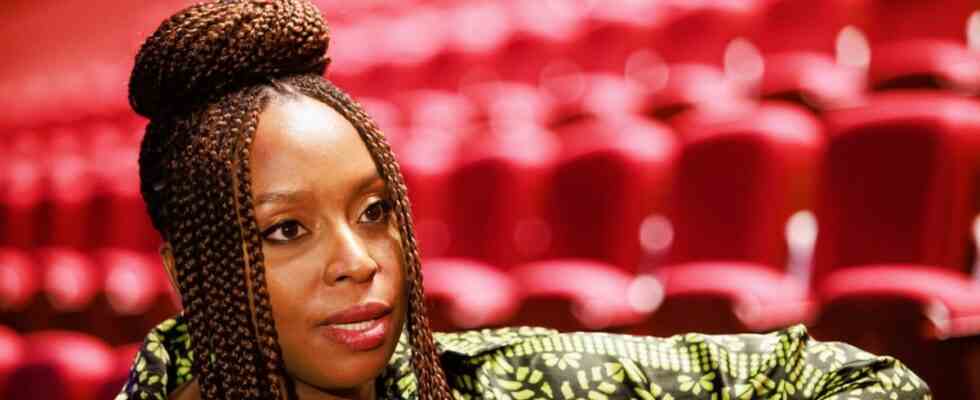In Nigeria, says the writer Chimamanda Ngozi Adichie, she is famous for causing trouble: Parents accuse her of being the reason their daughters don’t want to marry, and she is said to have ended many a marriage. In the rest of the world, she is better known for her novels. Her first, “Blauer Hibiskus”, won several awards. But she had her big breakthrough with two very successful Ted Talks, i.e. with speeches – she later made a book of the same name from “We should all be Feminists” from 2012. 2009’s “The Danger of a Single Story” was about how a single perspective on an issue prevails, dulling the perception of its complexity. Now she has received another honor – she has one of this year’s Reith Lectures for the BBC which will be broadcast this Wednesday and will also be published in written form on the BBC website afterwards.
The Reith Lectures are an institution on British radio – introduced by the BBC’s first Director General, John Reith, they have been broadcast annually since 1948, and Chimamanda Ngozi Adichie’s predecessors include Robert Oppenheimer, Stephen Hawking, Daniel Barenboim and Nobel Peace Prize winner Aung San Suu Kyi. This year, four speakers will address the “four freedoms,” freedom of religion, freedom from wanting, Fiona Hill speaking about freedom from fear. And Chimamanda Ngozi Adichie is dedicated to free speech – and in a very specific light: it’s about self-senzurship in the age of social media. The topic is actually already laid out in “The Danger of a Single Story”. According to Adichie, self-censorship will be the nail in the coffin for literature and other artistic narrative forms.
According to Adichie’s lecture, the world has been divided into “ideological tribes” – those who deviate will be punished on social media. “Barbarism,” says Adichie: “It’s the action of a virtual vigilante whose goal is not only to silence the person, but to create a vengeful atmosphere that discourages others from speaking.” And she goes even further: “There is something honest about an authoritarianism that recognizes itself for what it is. You can fight such a system more easily because the battle lines are clearly drawn. But the new social censorship requires a consensus that purposely remains blind to his own tyranny.” That is the end of curiosity and creativity – so Adichie also included a lot of material for controversy in a lecture about freedom.
Adichie only lives part-time in Nigeria, always withdrawing to the USA – “Americanah” from 2013 is her best-known novel, where she tells of people returning to America in Nigeria and racism in the USA. There the feminist spoke out against the criminalization of homosexuality. She can take it. And yet she has repeatedly dealt with the phenomenon of the shitstorm in recent years – here, too, she was able to contribute her own experiences: In 2017, when asked whether “trans women” were women, she replied that she felt “trans women as trans women”. didn’t apologize for the comment because she didn’t know what for, and since then the topic has been boiling up again and again, with the active participation of the guardians, who printed an excerpt in the run-up to her Reith Lecture, but insisted that she state what she meant. She answered the question. Orthodoxy, she added, can turn against anyone – and gave an interesting example: even her own novel “Americanah” could be interpreted as cultural appropriation, if you apply the idea with all severity.

